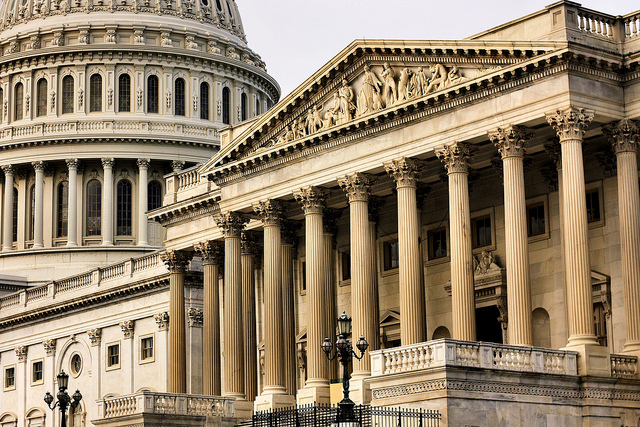If passed, the Republican Senate’s misnamed “Better Care Reconciliation Act” (BCRA) would deny health care coverage to 22 million low and middle income Americans, according to the Congressional Budget Office. It would end Medicaid coverage for millions of Americans and would not guarantee people even basic coverage of essential health benefits, likely leaving millions without needed care. It also permits states to allow insurers to hike up premiums and out-of-pocket costs significantly.
Under pressure from doctors, activists and the public at large and without adequate support in the Senate, Senator Mitch McConnell is delaying a vote on the bill until after the July 4th recess. Right now, Republican Senators Rand Paul and Ron Johnson believe the Senate bill to be too generous and have said they will not support it. And, Republican Senators Dean Heller of Nevada and Susan Collins say it is not generous enough. After McConnell said he would delay the vote, Senators Jerry Moran of Kansas, Shelley Moore Capito of West Virginia and Rob Portman of Ohio also came out publicly against the bill, according to the New York Times.
It’s not at all clear that all of the elements in the Better Care bill can be included as part of the budget reconciliation because they bear on matters beyond the budget. Only if they can, could they be enacted by a simple majority in Congress.
For now, here are key provisions of the BCRA:
- Wealthy people and the health care industry would pay lower taxes, while middle and lower income people, older people and less healthy people, will pay more for their health care coverage. The tax cut for the wealthy and the health care industry will mean $700 billion less to support health care for people with lower incomes and in poorer health over the next ten years. The 400 highest-income earning families in America–people who earn more than $300 million a year–would each see $7 million more a year. The $33 billion more they will see over the decade beginning in 2019 would fund Medicaid expansion for 726,000 people in Arkansas, Alaska, West Virginia and Nevada, according to the Center on Budget and Policy Priorities. The bill would repeal the 3.8 percent Medicare tax on unearned income as well as the tax on high earners. The ACA’s tax on health insurers, medical device companies and drug companies also would be eliminated.
- Insurer premiums would no longer be restricted to the cost of providing care plus a 15-20 percent charge for administrative costs and profits. If the state permits it, premiums could be set to deliver less value to consumers and give insurers far higher profits.
- States would have the authority to determine whether their health insurance marketplace continues and whether insurers must cover essential health benefits, such as maternity care, mental health care and prescription drugs. States could also decide that insurers do not need to impose annual out-of-pocket caps and may impose annual and lifetime coverage limits. The only constraint on states is that their plan not increase the federal deficit.
- Individuals would not be required to have health insurance. Without an insurance mandate, people with coverage will pay higher premiums. They will end up subsidizing the cost of care for people who do not buy insurance, and the pool of people with coverage will include fewer healthy people who will be more inclined to go without coverage.
- Medicaid would be cut significantly. Not only does it end Medicaid expansion in 2021, it slashes the Medicaid budget by $772 billion. It also limits coverage to a fixed amount per person or a fixed amount per state. Under the ACA, 31 states expanded Medicaid to cover people up to 138 percent of the FPL, about $15,000; and, currently, Medicaid covers as much care as people need, without limit.
- Subsidies for people with low incomes would be cut significantly and their deductibles and copays would rise. People with incomes under 350 percent of the federal poverty level would still get some help. But, unlike the ACA, which helped people up to 400 percent of the FPL with the cost of a good health insurance policy, the Senate Republican plan helps only a little with the cost of a limited insurance policy. The ACA provided help to people who needed to spend 9.7 percent or more of their income on a plan that covered 70 percent of their health care costs. The Senate bill expects people to spend as much as 16.2 percent of their income on a plan that covers only 58 percent of health care costs before it provides a subsidy.
- Insurers would still be required to cover everyone who sought coverage, including people with pre-existing conditions who waited to get sick before applying for coverage. But, there would be a six-month waiting period before coverage kicked in.
If you support improved Medicare for all to ensure health care for everyone in America, please sign this petition.
Here’s more from Just Care:











…the takeaway – giveaway is so obvious a banana slug could see it.
This measure was crafted behind closed doors by Republican Senators who all received financial support from Pharma and the insurance industry through campaign contributions and lobbying, and with no bipartisan input. The attempt to ram it through before the holiday while the public’s attention was riveted on the investigation into Russian interference in the 2016 election and Moscow’s alleged ties to the Trump campaign is to put it bluntly, deceptive and underhanded.
True the ACA is not perfect, however, many of the undesirable compromises were put into place to make the measure more “palatable” to the then obstructionist Republican coalition in Congress which still refused to vote on it.
Many do not realise that back in 2008 before the last balloon dropped form the ceiling at Mr. Obama’s victory celebration, there was a core group of Congressional Republicans and other conservatives who met at a club in D.C who set out to deliberately oppose and obstruct anything the new president proposed from day one. This is how despicable these people are. We even saw what sore losers they were in North Carolina when they held a special session in January (at state taxpayer expense) to strip many of the newly elected Democratic governor’s powers.
These so called “representatives of the people” have little interest in actually serving their constituents and the citizenry of this nation, but instead, the big money interests that keep them in office. In effect, because we are paying their generous salaries and benefit packages, the old colonial cry “taxation without representation” can be applied in this situation.
The vast majority of the public opposes the this proposal, yet a small minority of elected officials, many of whom bow to the big money interests, are the ones who will make the decision for the rest of us. This is government corruption at its worst.